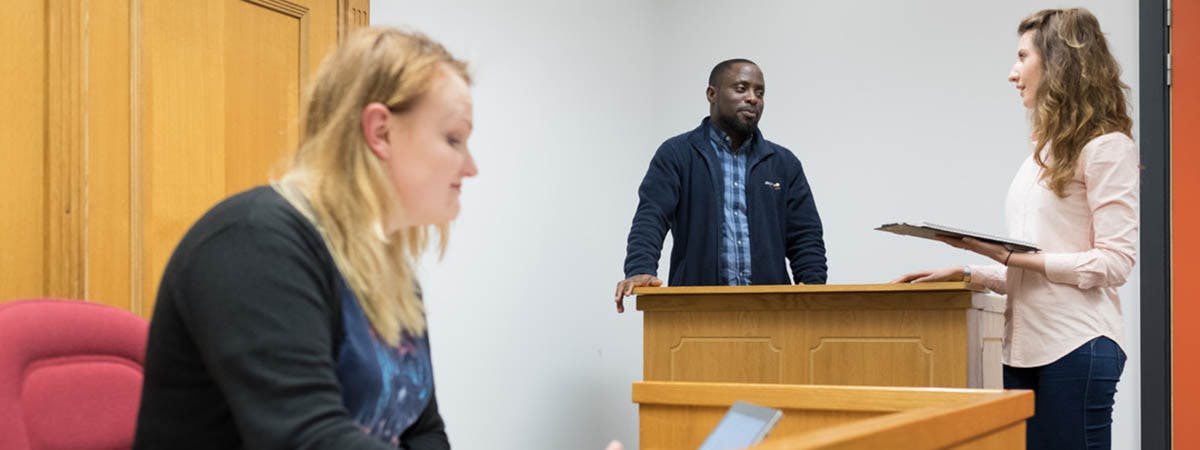Social Media Ambassador Nafisa Alom talks through her experiences as a Legal Practice Course student.

Every individual who has completed the LPC has shared how difficult it can be, but nothing could prepare me for the whole experience of completing the course. So, now that I have completed my LPC exams, I thought maybe putting my experience together and creating something insightful can help future LPC students, as well as be a good read for others.
Let me cut straight to the point - yes the LPC is hard, and I guess this warning settled a lot of nerves before I had even started the course. But no one told me how proactive and interesting the course actually is.
So, let me break it down. There are 5 skills modules:
- Writing
- Practical Legal Research
- Interviewing and Advising
- Advocacy
- Drafting
These modules revolve around practical skills and whether you are prepared to carry these skills forward once you move further down the Lawyer career route. Despite the current situation of the pandemic, the course leader and tutors continued to keep these skill modules interactive. These modules differed from modules on my undergraduate degree as they involved a lot more practical application.
Alongside these modules, there was also Business Law, Litigation, Property Law, Wills and Administration of Estates (WAAE), Solicitors’ Accounts, Professional Conduct Regulation and Taxation. All of them require extensive work to be carried out but they give a deeper understanding to those who are confused on what area of Law they wish to venture into, or may even open new doors to other aspects of Law you did not expect yourself to be interested in.
With online learning, things were a bit different, with regular online sessions and on-demand lectures. I think my initial approach to the course was haphazard - I was all over the place and lacked structure as there was a lot going on. So make sure you get yourself a diary! And not just an online diary, but a physical diary. Note down the modules, important dates to remember and your timetable. Once I had this sorted, it really gave some clarity and took a large weight off of my shoulders.
It took me some time to wrap my head around the idea that it was OK if I couldn’t do everything - if I couldn’t complete a reading, if I missed a lecture, if I didn’t understand something, and so on. As long as I rectified this in my own time, it was OK. I slowly imbedded time for myself and leisure into my timetable, as working 24/7 just exhausts your body and eventually you burn out. That’s another piece of advice - make sure to embed time to relax.
This brings me onto the point of emails. Any issue, concern, question - email your personal tutor, as they’re there to help you. Also, I regularly communicated with other staff members with any concerns I had regarding the module or course. This is what they are here for so keep up good communication with the teaching team of the LPC.
When it came to my LPC exams, it was a lot. The first thing I did was print out a calendar, mark the days where I had an exam (and what exam it was) and stuck it up in my bedroom. It helped me balance out what to revise and when to revise it, which ensured that I didn’t give too much time to one module and fall behind in another.
Personally, my phone is a huge distraction, and I’m sure a lot of you can relate, so I would never deprive myself of social media and interaction with my friends, but a great way to revise is to set yourself up on a desk, preferable in an open space and not your own bed, and leave your phone in your room (away from your working area). Whenever I would take a break or finish revising, I’d go back to my phone!
All of my LPC exams are over and I’ve begun my option modules for my Masters. So far it has been introductory sessions but I hope to gain some more insight and hopefully share this with everyone.
If you would like to hear more or have any further questions, don’t hold back from reaching out!




